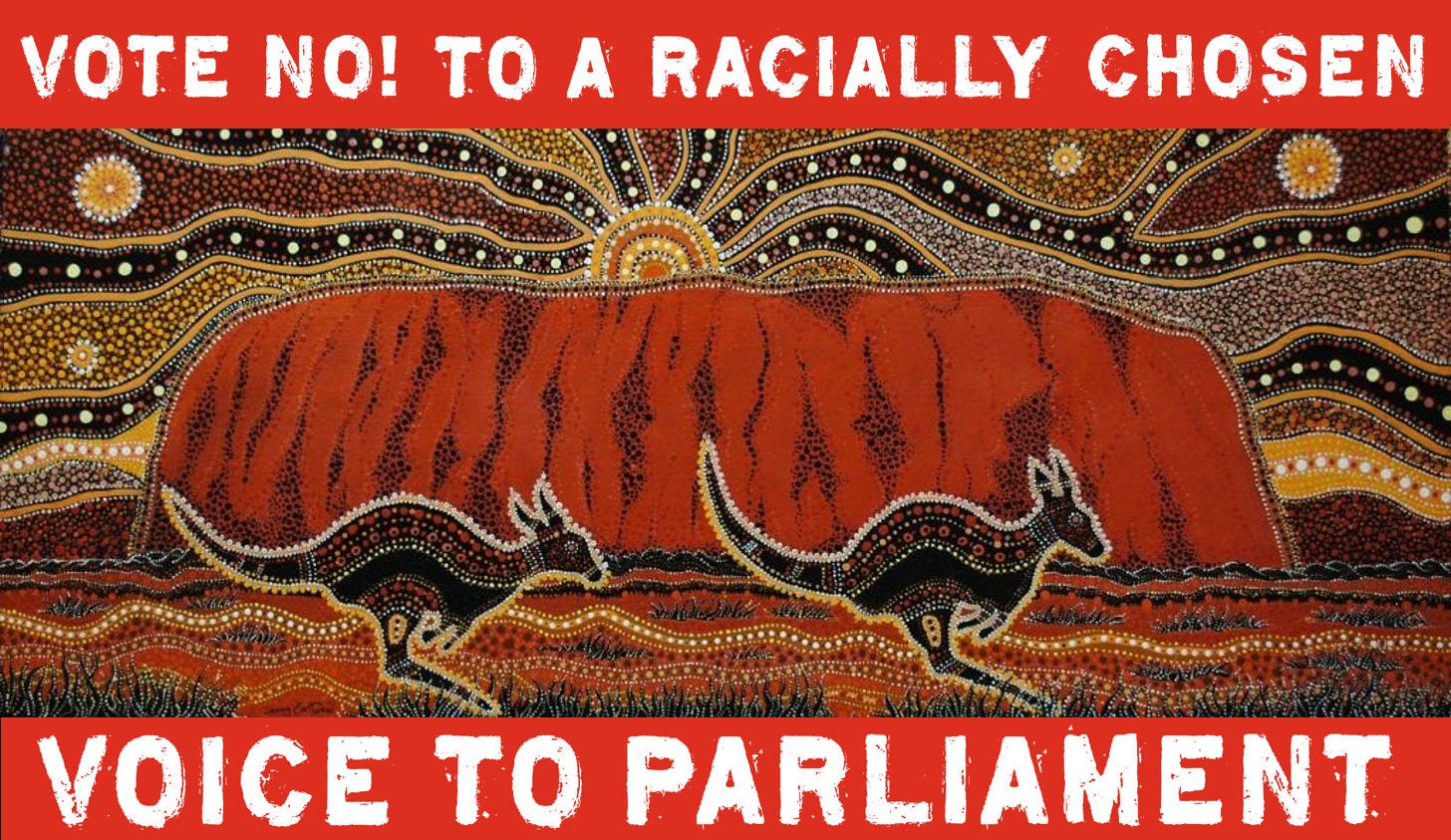Whether to oppose or support the Voice referendum is an easy decision for me. The proposal is fundamentally racist, and I’m a libertarian. Racism is a collective concept and simply incompatible with libertarianism.
Libertarians see people as individuals, not as members of a group.
The proposal is for people of the Aboriginal race to elect members of the Voice, which will have the right to give advice to the government and executive. Non-Aborigines will not have a vote for the Voice, and will have no comparable means of giving advice. Australians will thus be divided into two groups – Aborigines and non-Aborigines, with Aborigines having rights that non-Aborigines do not have. Moreover, by being in the Constitution, the Voice will have a status not held by any other advisory body.
Dividing people into groups, whether it is race, gender, ethnicity, religion or sexual preference, is collectivism. It might be appropriate on occasions for statistical purposes, but it is not acceptable as a basis for government policy. The only legitimate approach, to libertarians like me, is to treat people as individuals.

That does not mean we lack concern for the welfare of Aborigines. Like Australians generally, we are distressed at the pathetic improvements revealed by the Closing the Gap surveys. Indeed, the third world conditions of Aborigines in remote regions is a national disgrace that I railed about regularly when in the Senate.
And yet, there are plenty of Aborigines who participate in Australian society on the same terms as other Australians. They have jobs, are not poor, their children attend school, and they are not involved in substance abuse. Moreover, there are plenty of non-Aborigines who do not have jobs, are poor, abuse drugs, and neglect their children.
Treating all Aborigines differently because some are poor and disadvantaged makes no more sense than treating non-Aborigines differently because some of them are poor and disadvantaged. The problem is that these issues exist, not the race of those who suffer them.
Libertarians see people as individuals, not as members of a group.
We share Martin Luther King’s dream, in which he hoped that one day his four little children would be judged on the basis of their character, not the colour of their skin.
Racism is a collective concept and simply incompatible with libertarianism.
Collectivism, which includes defining people by their race, is rejected. If someone is poor and disadvantaged, the appropriate response is to overcome the disadvantage that keeps them poor. This is true irrespective of the race of those concerned, or indeed any other collective characteristics with which they might be defined.
Voting no to the voice referendum can be justified on several grounds, including the fact that it will seriously compromise the role of parliament once the High Court gets its hands on it. But for libertarians, the simple fact that it is based on racism is sufficient.



